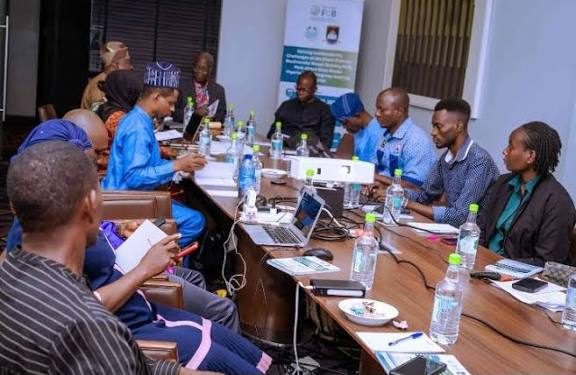Nigeria has deepened its efforts to tackle food supply challenges by partnering with Professor Rashid Sumaila, a globally recognised expert in Ocean and Fisheries Economics, to develop long-term solutions for fish sufficiency and marine sustainability in the Gulf of Guinea.
Professor Sumaila, who is renowned for his interdisciplinary work on ocean sustainability, visited Lagos for a progress review with Nigerian researchers working on strategies to enhance food security through sustainable fisheries.
The session was part of an ongoing assessment of postgraduate researchers from Lagos State University and the University of Lagos under the international Solving-FCB project.
Speaking on the collaboration, Professor Shehu Latunji of LASU, a Co-Investigator on the project, explained that the engagement focused on evaluating research addressing the complex balance between food needs, climate pressures and biodiversity conservation.
He said Professor Sumaila’s visit provided critical feedback on the progress of Nigerian scholars who are studying marine ecosystems and coastal livelihoods.
During the meeting, Professor Sumaila praised the quality of local research and underscored the urgency of safeguarding Nigeria’s fish resources. He emphasised that the core objective of the project is to determine how millions of Nigerians can be fed with fish “without emptying the ocean in the face of climate change.”
He added that effective fisheries management must combine scientific evidence with policy action to protect both present and future generations.
The project encourages collaboration across journalists, scientists, government institutions and NGOs, aimed at building local capacity and promoting knowledge exchange for sustainable fisheries governance.
It forms part of the Solving Sustainability Challenges of the Food, Climate and Biodiversity Nexus initiative, a global programme funded by the Social Sciences and Humanities Research Council of Canada and led by the University of British Columbia’s Institute for the Oceans and Fisheries.
The six-year initiative began in 2022, with Nigeria participating as a key West African contributor due to its reliance on fish as a major protein source.
Also present were stakeholders from WorldFish Nigeria, the World Aquaculture Society and the Nigerian Institute of Oceanography, alongside collaborators who joined virtually.
The visit concluded with a gesture of appreciation as Professor Sumaila received a commemorative photograph signed by participants.
Nigeria’s partnership underscores growing concern over declining fish stocks, rising demand and threats posed by climate change and illegal fishing.
With local consumption heavily dependent on imports, experts believe that research-driven interventions such as this could help reshape national policy, support coastal economies and move the country toward greater self-sufficiency in seafood production.










